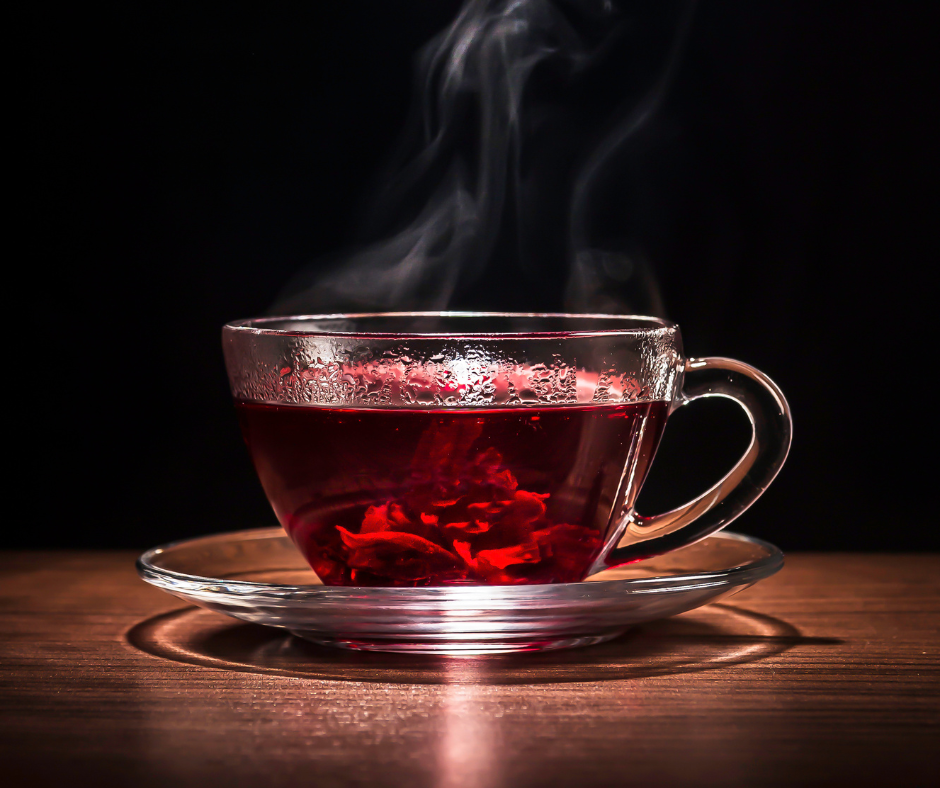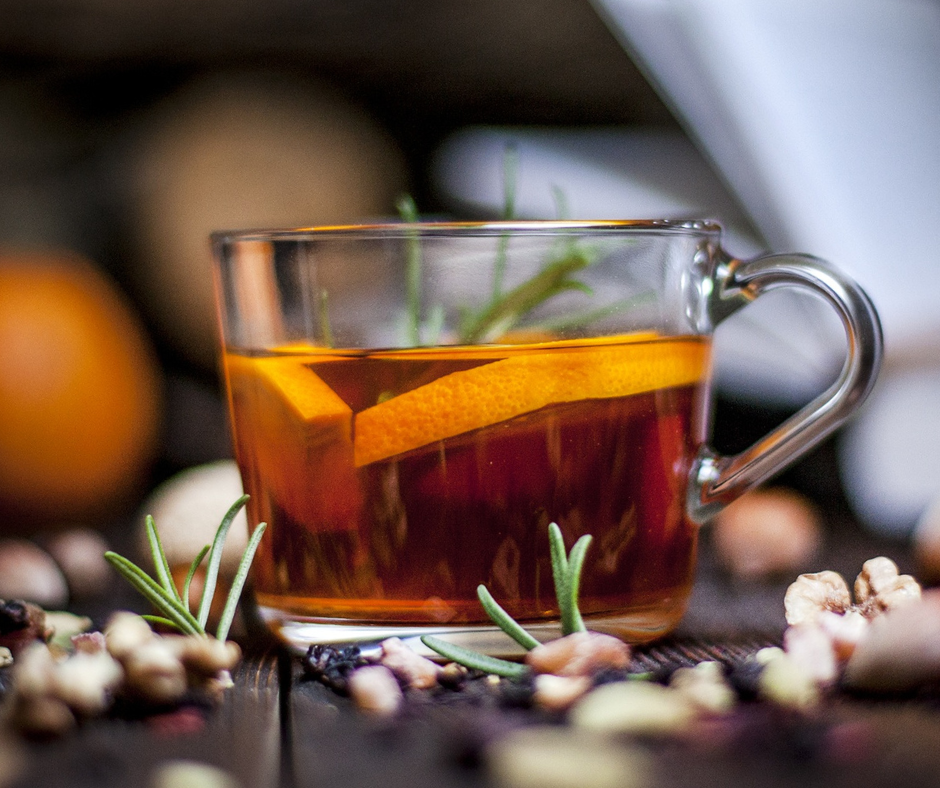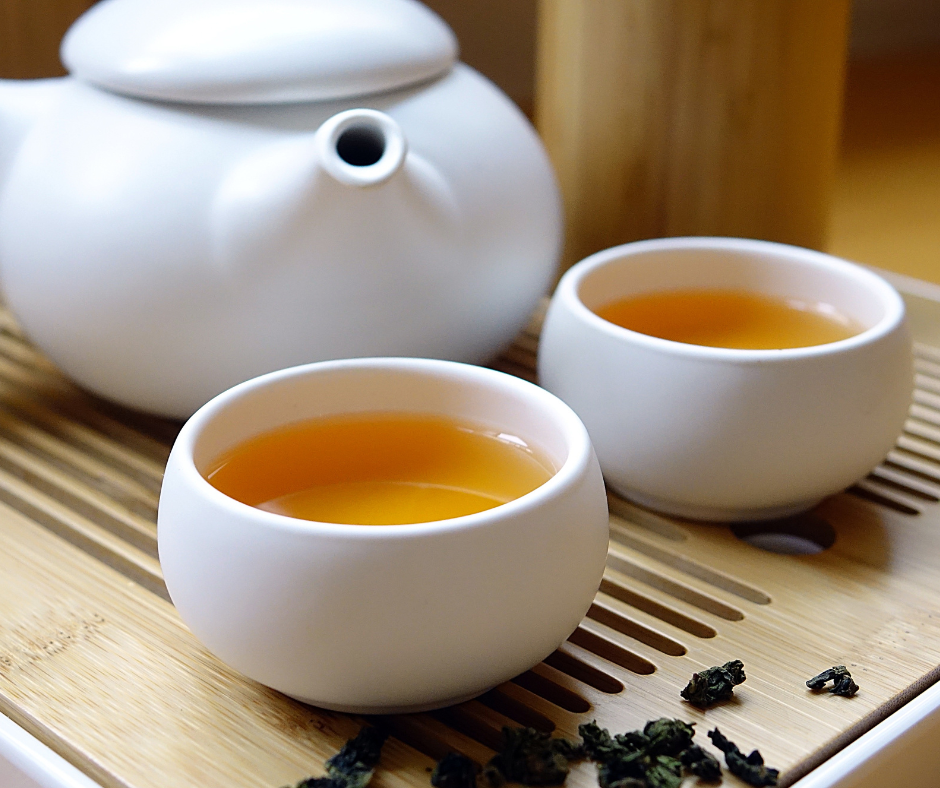Introduction
Tea is a beloved beverage enjoyed by people around the world. Whether it’s a warm cup of black tea in the morning or a soothing herbal infusion in the evening, tea provides comfort and relaxation. But have you ever wondered, ‘Can Tea Go Bad?‘
While tea doesn’t have a strict expiration date like other perishable items, it does have a shelf life. Over time, tea can lose its freshness, flavor, and beneficial antioxidants. The quality of the tea leaves can deteriorate due to various factors, such as exposure to oxygen, light, heat, and moisture. This can result in a less flavorful and less enjoyable cup of tea.
Factors Affecting Tea Shelf Life
The Role Of Processing And Packaging
Tea undergoes various processing methods, such as withering, rolling, oxidation, and drying, which can affect its shelf life. Proper processing techniques can help preserve the quality and flavor of the tea. Additionally, the type of packaging can also play a role in the tea’s shelf life. Tea is often packaged in airtight containers to prevent exposure to air, light, moisture, and heat, which can accelerate the degradation process.
How Storage Conditions Impact Tea Quality
Proper storage conditions are essential for maintaining the freshness and flavor of tea. Here are some key factors that can impact the quality and shelf life of tea:
- Air: Exposure to air can lead to oxidation, causing the tea to lose its freshness and flavor. It’s crucial to store tea in an airtight container to minimize contact with oxygen.
- Light: Tea leaves are sensitive to light and can undergo photo-oxidation when exposed to sunlight or bright artificial light. To protect the tea from light, it should be stored in a dark or opaque container.
- Moisture: Tea can absorb moisture from the surrounding environment, leading to mold growth and flavor loss. It’s important to store tea in a cool and dry place to prevent moisture absorption.
- Heat: High temperatures can accelerate the degradation process of tea and affect its flavor. Heat can also cause moisture to condense inside the packaging, leading to moisture-related issues. Tea should be kept away from direct heat sources or fluctuations in temperature.
By understanding these factors and taking appropriate measures, such as storing tea in an airtight container away from direct sunlight and a cool, dry place, you can help prolong the shelf life and maintain the quality of your tea.
Signs Of Tea Going Bad
Visual Indications Of Spoiled Tea
Expired tea can exhibit various visual indications that it has gone bad:
- Loss of color: A noticeable color change is one of the first signs that tea has expired. For example, green tea may turn yellow or brown, while black tea can become darker or even develop a reddish hue.
- Presence of mold or insects: In some cases, expired tea can develop mold or become infested with insects. If you notice any signs of mold growth or insects in your tea, it indicates it is no longer safe to consume.
Aroma And Flavor Changes In Expired Tea
Expired tea can also change aroma and flavor:
- Loss of aroma: Fresh tea leaves have a distinct aroma, but as tea ages and expires, it can lose its fragrance. If you open a tea container and notice a lack of aroma or a stale, musty smell, it is a sign that the tea may have expired.
- Flavored tea becomes bland: Flavored teas, such as fruit-infused or herbal blends, may lose their vibrant flavors over time. The expired tea may taste bland or “off” compared to when it was fresh.
Drinking expired tea is not necessarily harmful, but it may not taste as good or have the same health benefits as fresh tea. To ensure the best quality and flavor, it is recommended to consume tea before it reaches its expiration date. Proper storage in an airtight container, away from moisture, light, and heat, can help extend the shelf life and maintain the freshness of your tea.
Shelf Life Of Different Types Of Tea
The shelf life of tea varies based on the type. Here is a breakdown of the approximate shelf life for different types of tea:
Green Tea Shelf Life: How Long Does It Last?
Green tea generally has a shorter shelf life than other tea types. Green tea can last for about 6 to 12 months with proper storage. However, its flavor and quality may start to decline over time. Consuming green tea within the suggested shelf life is best to enjoy its flavors and benefits fully.
Black Tea Shelf Life: Factors To Consider
Black tea has a longer shelf life compared to green tea. When stored properly, black tea can last for 1 to 2 years. However, like green tea, its flavor and quality may deteriorate over time. It’s important to note that factors such as storage conditions and the presence of added flavorings or oils can affect the shelf life of black tea.
It’s worth mentioning that some teas, like aged teas, can last for several years and even improve with age. On the other hand, herbal teas and teas with added flavorings or oils may have a shorter shelf life.
In conclusion, while tea can technically last longer than the recommended timeframes, it’s best to consume tea within its suggested shelf life to enjoy its full flavor and quality. Proper storage in an airtight container, away from moisture, light, and heat, can help extend the shelf life and maintain the freshness of your tea.
Long-term Tea Storage Methods
Tips For Maximizing Tea Freshness
To ensure your tea stays fresh for as long as possible, consider the following tips:
- Use airtight containers: Transfer your tea to glass jars or tin canisters with tight-fitting lids. This will help to protect the tea from exposure to air, moisture, and odors.
- Avoid light exposure: Store your tea in a cool, dark place, as light can degrade the quality and flavor of tea over time. Avoid storing tea near windows or other sources of light.
- Control temperature and humidity: Tea is best stored in a cool and dry environment. Please keep it away from heat sources such as stoves or ovens, as well as away from moisture in the kitchen or bathroom.
- Separate different types of tea: If you have different types of tea, it’s best to store them separately to prevent cross-contamination of flavors and aromas. Keep herbal teas separate from black or green teas.
- Consider dividing tea into smaller portions: If you have a large quantity of tea, consider dividing it into smaller portions to minimize the exposure of the entire supply to air and moisture when you open the container.
How To Properly Store Loose-leaf And Tea Bags
For loose-leaf tea:
- Place loose-leaf tea in airtight containers: Use airtight containers specifically designed for loose-leaf tea that can keep it fresh and prevent oxidation.
- Store away from strong odors: Keep loose-leaf tea away from strong-smelling spices or any other substances that could transfer odors and affect the flavor of the tea.
For tea bags:
- Keep tea bags in their original packaging: They are often individually wrapped to provide additional protection. Keep them in their original packaging or transfer them to airtight containers.
- Consider using zipper bags: If you don’t have a dedicated container for tea bags, consider using resealable zipper bags to keep them fresh.
By following these storage methods, you can prolong the shelf life of your tea and ensure that it remains fresh, flavorful, and enjoyable for an extended period. Always check the recommended shelf life for each type of tea and consume it within that timeframe to experience the best quality and taste.
Expired Tea: Is It Safe To Drink?
Understanding Tea Safety And Health Risks
When tea reaches its expiration date, it doesn’t automatically become unsafe to consume. However, it may not taste as good or offer the same health benefits as fresh tea. The flavor of expired tea can be dull, flat, or even stale. Additionally, the aroma and potency of its natural compounds may diminish over time.
It’s important to note that the expiration dates on tea bags are more related to quality and taste rather than safety concerns. However, if the tea has been stored improperly or for a significant amount of time after its expiration date, there is a small chance of bacterial growth or contamination. This risk is minimal but should be considered, especially if the tea has been exposed to moisture or the packaging has been compromised.
Ways To Repurpose Expired Tea
If you have expired tea that you don’t want to waste, there are alternative ways to use it. Here are a few ideas:
- DIY beauty treatments: Expired tea can create natural beauty treatments for your skin and hair. For example, you can brew a strong cup of tea, let it cool, and use it as a toner or facial mist. The antioxidants in tea can help rejuvenate and soothe your skin.
- Natural insect repellent: Some insects, such as ants and mosquitoes, are repelled by the scent of certain teas. You can steep the expired tea bags in hot water, let them cool, and then use the tea to repel insects in your garden or around your home.
- Composting: Add expired tea leaves to your compost pile if you have a compost bin or garden. Tea leaves are rich in nitrogen and can contribute to the overall nutrient content of the compost, helping your plants thrive.
Remember, before using expired tea for any alternative purposes, check for any signs of mold or unusual odors. If the tea appears spoiled or has an off smell, it’s best to dispose of it rather than use it for any purpose.
In conclusion, while drinking expired tea is not necessarily harmful, it may not provide the same taste or benefits as fresh tea. Proper storage techniques can help prolong the shelf life of your tea and ensure its freshness. If you have expired tea, consider repurposing it instead of consuming it, as long as it doesn’t show any signs of spoilage.
Extending The Shelf Life Of Tea
Preventing Tea From Going Bad Too Soon
To ensure that your tea stays fresh for as long as possible, it’s essential to follow proper storage techniques. Here are some tips to prevent tea from going bad too soon:
- Use an Airtight Container: Store tea in an airtight container to protect it from exposure to air and moisture. This will help preserve its flavor and aroma.
- Keep Away from Heat and Sunlight: Heat and direct sunlight can accelerate the deterioration of tea. Therefore, store it in a cool, dry place away from heat sources or strong light.
- Avoid Strong-Smelling Substances: Tea easily absorbs odors, so storing it away from strong-smelling substances such as spices or perfumes is best. This will prevent any flavor contamination.
- Maintain a Cool and Dry Environment: Tea is best stored below room temperature in a cool, dry place. Excessive heat and humidity can spoil the tea more quickly.
Proper Infusion And Brewing Techniques For Aging Tea
If you have aging tea that you want to enjoy, it’s essential to follow proper infusion and brewing techniques. Here’s how to make the most out of your aging tea:
- Adjust Brewing Time: Aging tea often requires a longer brewing than fresh tea. Follow the brewing instructions specific to the type of tea you have to extract the desired flavors and aromas.
- Use Hot Water: Aging teas usually benefit from hot water temperatures ranging from 90°C to 100°C (195°F to 212°F). This helps extract the nuances of flavor that come with age.
- Experiment with Steeping Methods: Aging tea can be brewed using different methods, such as gongfu or steeping in a teapot. Explore different brewing techniques to find the one that brings out the best taste for your specific tea.
- Store Properly After Brewing: Store any remaining tea in an airtight container to maintain its freshness after brewing your aging tea. This will prevent the tea from absorbing any unwanted flavors or moisture.
By following these tips, you can extend the shelf life of your tea and ensure that it retains its flavor and quality for a longer period. Remember to consult the specific storage recommendations for your tea type, as different teas have varying needs.
Conclusion
Now you should know the answer to ‘Can tea go bad?’. Tea can indeed expire, but it doesn’t necessarily mean it becomes unsafe to consume. The expiration date on tea bags is more of a recommendation for the best flavor and quality rather than an indication of safety. Properly stored tea can still be used after its expiration date if it doesn’t show any spoilage.
It’s important to store loose-leaf tea in an airtight container and keep it away from moisture, air, heat, and sunlight to extend its shelf life. By doing so, you can preserve your tea’s flavor and health benefits for a longer period.
Importance Of Being Mindful Of Tea Shelf Life
Being mindful of the shelf life of tea is important for several reasons. First, drinking fresh tea ensures that you get the best flavor experience. Tea loses its aroma and taste as it ages, resulting in a less enjoyable cup of tea. By regularly evaluating and replacing old teas, you can ensure that you’re always getting the best flavor from your tea.
Additionally, the health benefits of tea may diminish over time. Tea contains antioxidants and other beneficial compounds, which can degrade with prolonged storage. By consuming fresh tea, you maximize its potential health benefits.
Final Thoughts And Recommendations
Purchasing tea in smaller quantities rather than in bulk is recommended to make the most out of your tea. This way, you can ensure you consume tea within its optimal freshness.
When storing loose-leaf tea, invest in a good quality airtight container or tin that will protect it from moisture, air, and sunlight. Keep the container cool and dry, away from any strong odors.
Lastly, trust your senses when determining if tea has gone bad. If you notice any unusual smells, mold growth, or the tea tastes off, it’s best to discard it to avoid any potential health risks.
By following these guidelines and being mindful of the shelf life of your tea, you can continue to enjoy fresh and flavorful cups of tea for a longer period.
FAQ: Tea Shelf Life: Can Tea Go Bad?
Q: Can tea go bad?
A: Yes, tea can expire. Most tea bags come with an expiration date, usually two years from production. However, this doesn’t mean the tea will become unsafe to consume after this date.
Q: Can loose-leaf tea go bad?
A: Loose-leaf tea can go bad if exposed to moisture or air. To extend its shelf life, it’s important to store it in an airtight container and keep it away from sunlight and moisture.
Q: Is it bad to drink expired tea?
A: Drinking expired tea is not necessarily harmful, but it may not taste as good or have the same health benefits as fresh tea.
Q: Do tea bags expire?
A: Yes, tea bags also have a shelf life and can eventually go bad. They usually have a shelf life of 6-12 months if stored properly. However, if the tea bags are exposed to moisture, they can go bad more quickly. It is always a good idea to check the expiration date on tea bags before using them.
Q: How long does loose-leaf tea last?
A: Loose-leaf tea can last up to a year if stored properly.
Q: What factors affect the shelf life of tea?
A: The shelf life of tea can be affected by factors such as exposure to moisture, air, and sunlight. Proper storage in an airtight container away from these elements is essential to maintain the tea’s quality and freshness.
Q: How should I store my tea to maximize its shelf life?
A: To maximize the shelf life of your tea, store it in an airtight container in a cool, dry place. Keep it away from sunlight and moisture, as these can degrade the quality of the tea.
Q: How can I tell if my tea has expired?
A: Signs that your tea may have expired include a stale or off smell, a color change, or a loss of flavor. If you notice any of these signs, it is best to discard the tea.

Deb Carlson at Crosslake Coffee: Join Deb at Crosslake Coffee for a delightful blend of community, caffeine, and creativity. Discover the cozy ambiance and warm hospitality that make this local coffee shop a beloved gathering spot. From expertly crafted espresso drinks to mouthwatering pastries, Deb invites you to savor every sip and bite. Stay connected with the latest updates on specials, events, and live music performances by following Deb Carlson at Crosslake Coffee on social media. Embrace the vibrant online community and share your love for great coffee and good company with fellow enthusiasts. Don’t miss out on a moment of the Crosslake Coffee experience – connect with Deb on social media today.



